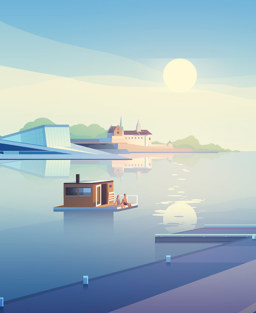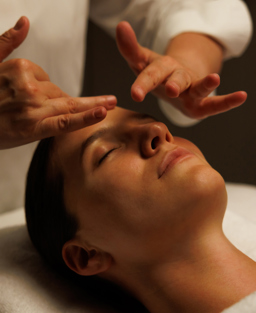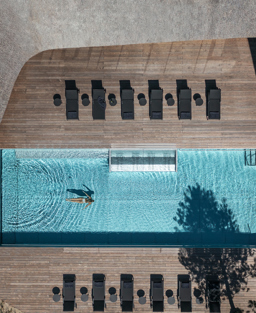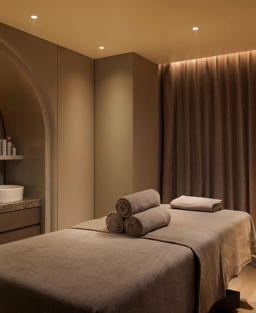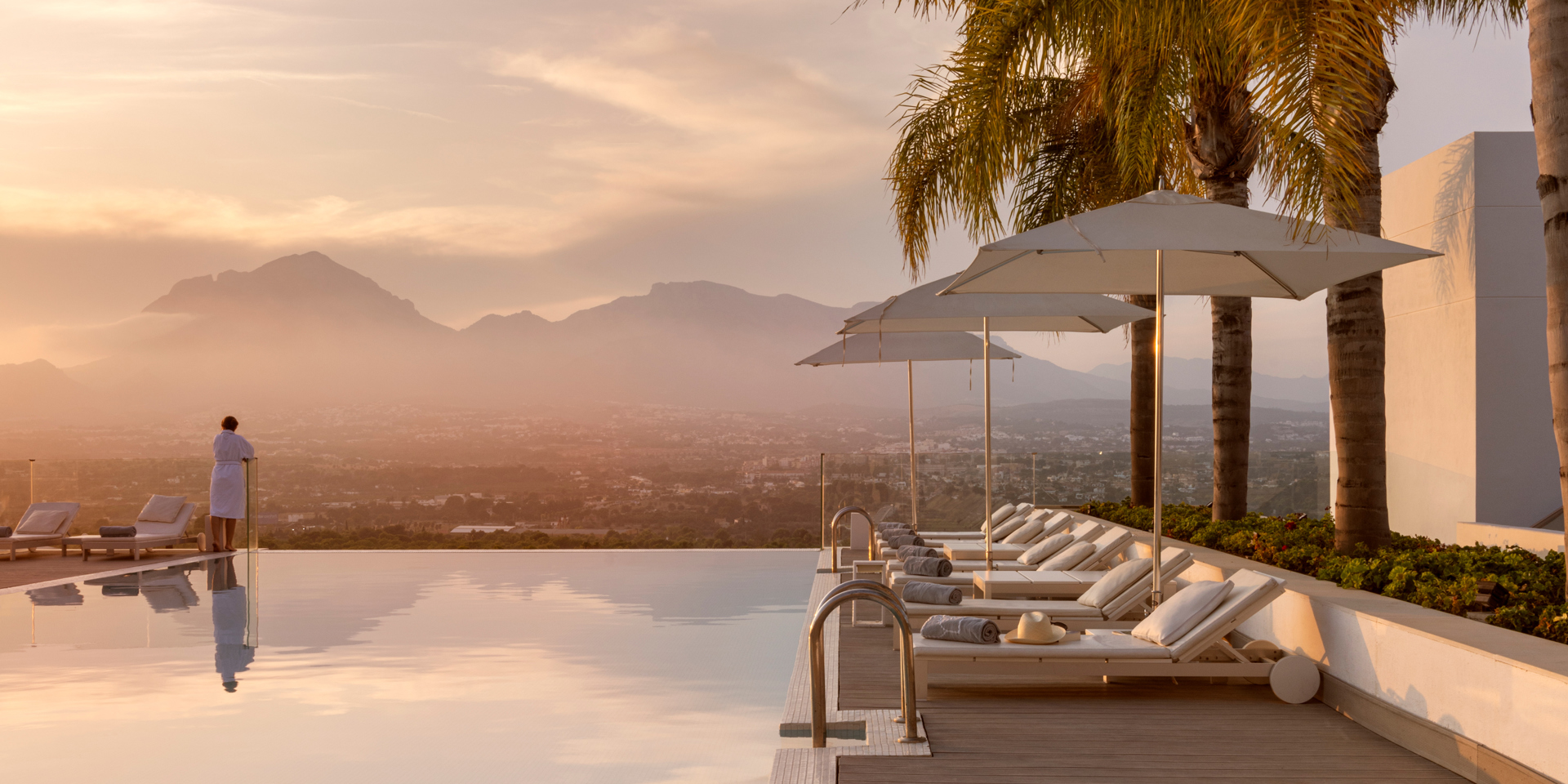

Can travel really make you live longer?
With ‘longevity’ on the lips of what seems like every best-seller, podcaster and entrepreneur on the planet, Hannah Ralph examines how the travel industry is coming on board
13/03/2024Updated 21/02/2025
The kind of menus I’m used to receiving on holiday are usually divided up by ‘Cocktails’, ‘Wines’ and ‘Beers’; ‘Happy Hour Specials’, if I’ve timed it right. Today, though, surrounded by milky marbles, white robed bajillionaires and vats of piney echinacea tea that never seem to run dry, I look down to see ‘Genetic Testing’, ‘Medical Imaging’ (an echocardiogram for the lady?) and ‘Manual Advanced Aesthetics’. Soon, it’s off for my Binaural Acoustic and Dynamic Stimulation: a high-tech waterbed designed to target synchronised sine waves at my energetic core (despite my insistence that I don’t have one) and regulate neurons in my brain via frequencies imperceptible to the human ear. The system, originally developed by American scientists to treat post-traumatic stress disorders in veterans, is all part of my girls’ spa weekend.
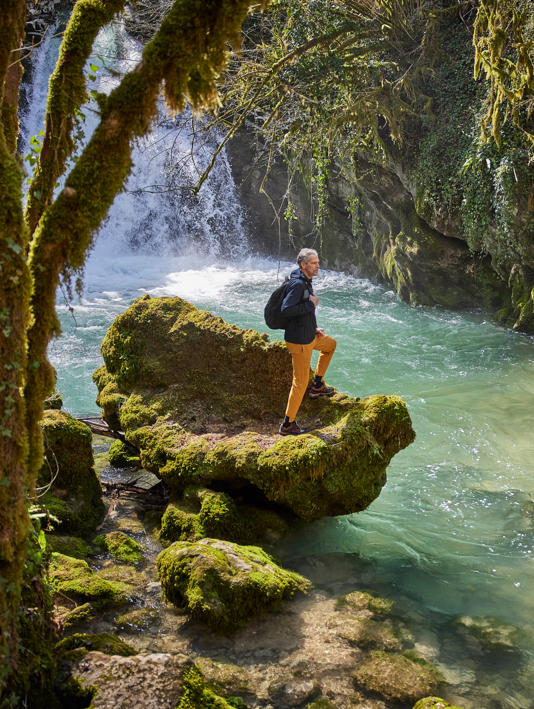
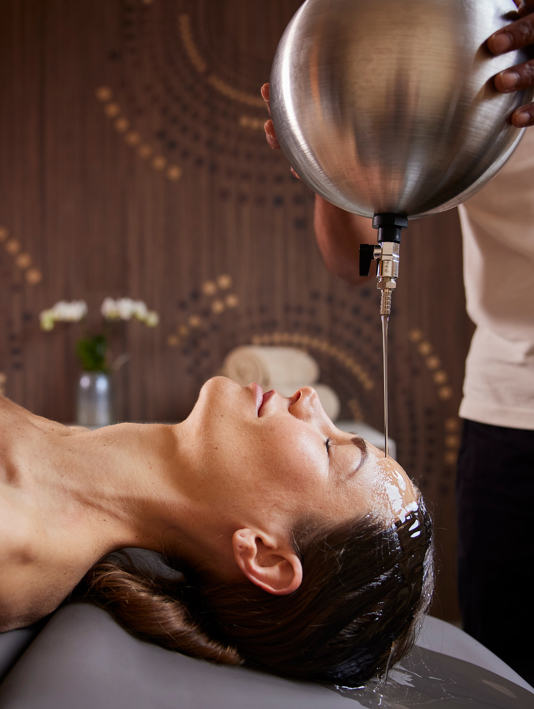
The great outdoors and a rejuvenating therapy at Palazzo Fiuggi (Tyson Sadlo)
I am, of course, at Palazzo Fiuggi – Oprah Winfrey’s favourite medi-spa retreat in the depths of the Italian countryside – on its increasingly popular Longevity & Rejuvenation programme. After three days of holistic treatments, nourished by the town’s water supply (said to have sorted out Michaelango’s kidney stones) and not a processed carbohydrate in sight, I feel as if maybe I have put a couple of extra months on the proverbial countdown. I can only assume that those who stick around for the full 21 days trap their souls into age-defying pool selfies upon check-out, like a perma-tanned Dorian Grey.
It’s a similar scene at resorts across Europe. At Palace Merano, check-ins are followed by bioenergetic check-ups. At Alicante’s famed SHA Wellness Clinic (opening image), you’re just as likely to run into a white coat as a bikini. And then there are all the various Chenot locations, with their trademarked ‘method’ and legion of devotees. Soon, I suspect, every wellness hotel out there will be offering a ‘Longevity Clinic’. And it’s for good reason, too: as our obsession with living longer continues to gain pace, more and more holidaymakers seem willing to pay the big bucks necessary to avoid the elephant in the room.
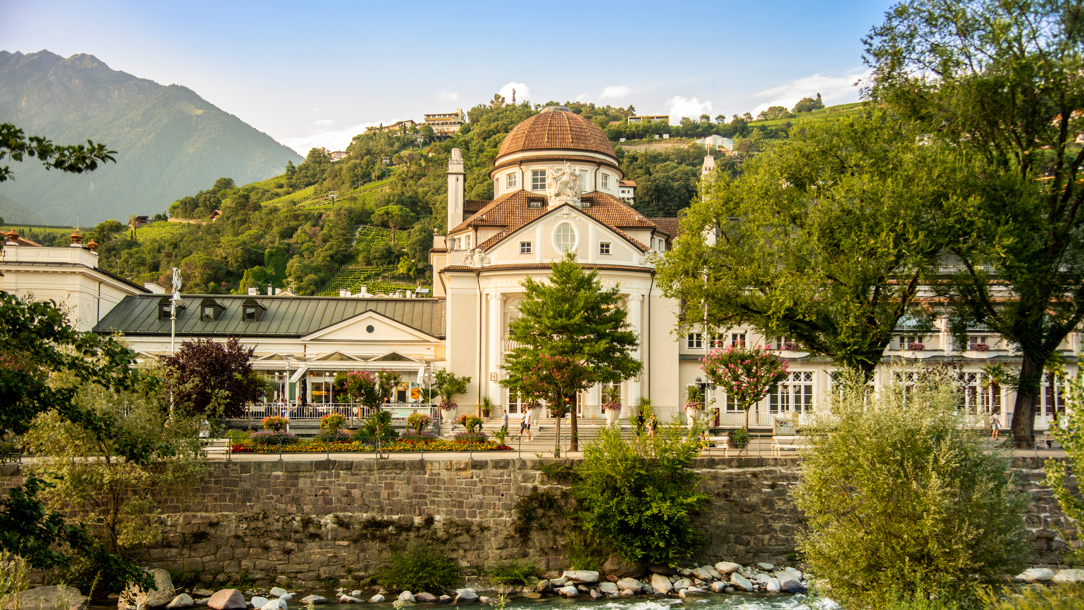
Palace Merano in South Tyrol, Italy
According to the Global Wellness Institute, wellness tourism is predicted to be worth a whopping $1.3trn by 2025 (it raked in $651bn during 2022 alone). This is, in part, fuelled by travellers who don’t just want a detox from the everyday, but an education on how to make everyday a detox.
Back home, commutes are filled by a podcast landscape dominated by the likes of neuroscience professor Andrew Huberman, former monk Jay Shetty and biotech Whoop investor Steven Bartlett. The successes of best-selling books such as by Dr Peter Attia, which has sold more than a million copies worldwide, further reflect the current Western preoccupation, as do the one per cent who, right now, are investing in cellular reprogramming like it’s gold rush 2.0. And, hey, maybe it is. The question is, can travel really get you a slice of the pie? And if so, how?
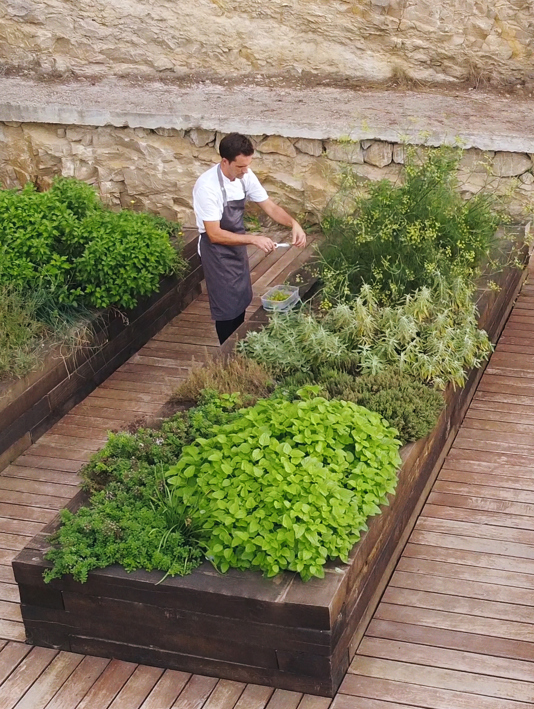
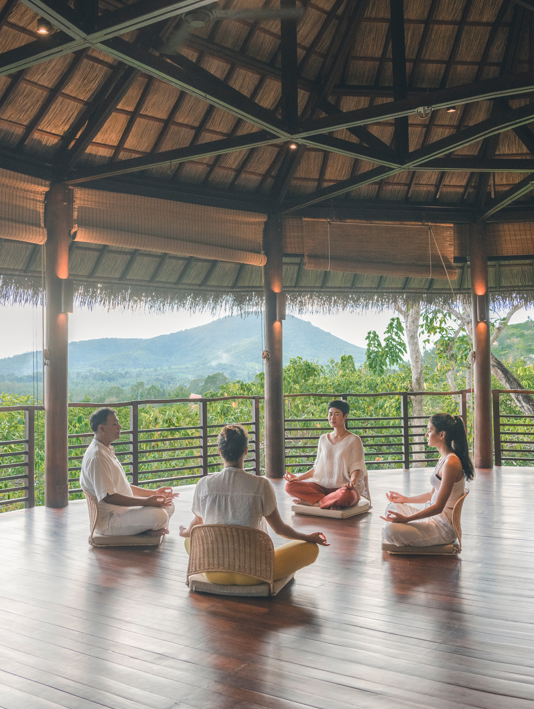
Herb garden at SHA Wellness Clinic, Alicante; group meditation at Kamalaya Resort Koh Samui, Thailand
Blue Zones
Since Netflix turned Dan Buettner’s famed National Geographic research into hit show Live to 100: Secrets of the Blue Zones, Blue Zone travel has cropped up on more travel trend reports than we can count. In Buettner’s landmark findings, the world’s longest-living centenarians were traced to five distinct communities or ‘Blue Zones’ around the globe. Ever since, Joe Public has been desperate for the secret sauce.
Of the five – Okinawa in Japan, Ikaria in Greece, Nicoya in Costa Rica, Sardinia in Italy and Loma Linda in the USA – many capitalised on the PR superboost, with Blue Zone retreats extolling the secrets of their regional centenarians. There are locals who, still, make a lucrative, extra-long living allowing tourists to shadow their lifestyle as part of educational homestays. Blue Zone practitioners are even regulars on the wellness resort roster, regardless of whether the destination is a Blue Zone or not, such as at Kamalaya Koh Samui in Thailand or Borgo Egnazia in Puglia, which was the first hotel to partner with Buettner in any official capacity.
The common threads of these five destinations were distilled into what was coined the ‘Power9’ – nine habits, specific to the geography and culture of all five, which seem to have a net-positive correlation to longer lifespans. These include things such as the 80 per cent rule (to stop eating when one is 80 per cent full) and the ‘plant slant’ – a diet that favours seasonal vegetables and legumes over animal proteins. And while you can travel to any of the Blue Zones today (noting that Okinawa has technically been delisted on account of rising obesity), the rules are applicable to life anywhere, even if that life isn’t lived among the palm trees of Nicoya or the lush olive groves of Sardinia.
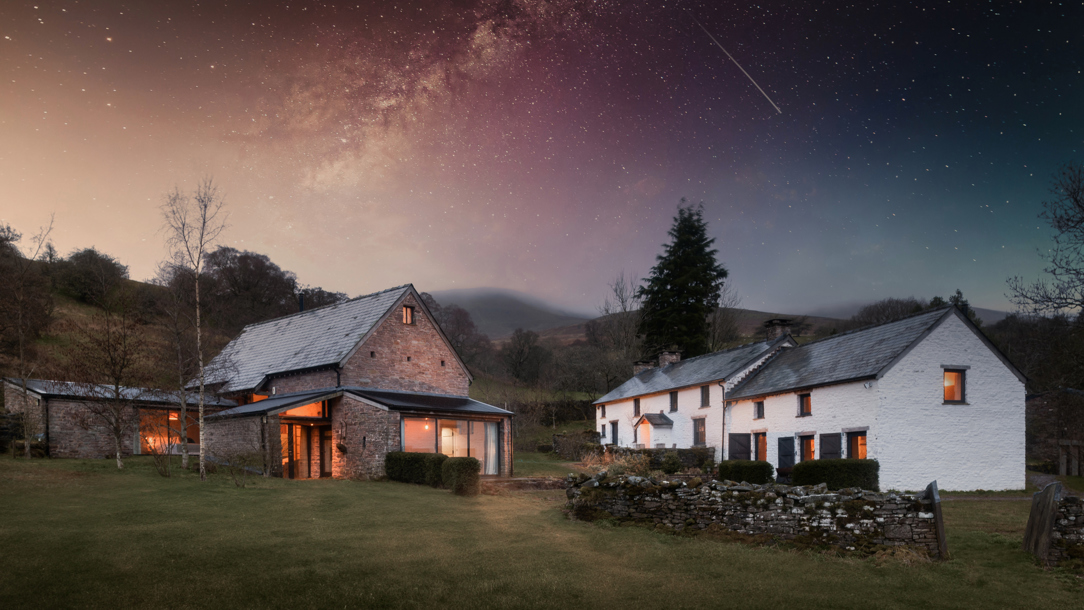
Farmhouse retreat Celestia in the Brecon Beacons, Wales
Natural phenomena
You may have experienced it gazing up at a star-dotted sky, or at the rim of the Grand Canyon. Maybe you felt it when you listened to Mozart’s final symphony or before a feat of great courage. This feeling of incomprehensible admiration, indescribable sublimity, is known, most commonly, as awe. That’s awesome. You’re awestruck. And research from the brains at UC Berkeley says the experience isn’t just a mood booster, it’s also an immunity booster. Awe is, according to recent studies, associated with lower levels of pro-inflammatory cytokines – high levels of cytokines (which tell the immune system to go, go, go) being linked with type-2 diabetes, heart disease and even Alzheimer’s and depression.
Awe, inevitably, is helped by newness, making travel a perfect playground for its induction. After all, chances are you won’t experience the northern lights in your own backyard or catch the astrotourism bug in your light-polluted city. However, you might indulge in both in the Brecon Beacons, an International Dark Sky Reserve in Wales, at restored farmhouse retreat Celestia. Aptly named, this scenic homestay encourages guests to commune at the ‘stargazing bowl’ to gape at the Milky Way and track shooting stars. In Arizona, home to the first ever International Dark Sky City of Flagstaff, boutique motels (try Americana Motor Hotel or High Country Motor Lodge) let you borrow telescopes for connecting with the glittering chalkboard in the sky. Awe, after all, relies on a connection to something bigger than oneself.
Much like the Power9, the trick to cracking the lore of awe is to find it in the everyday, not just on the other side of a 787. Author of Awe: The New Science of Everyday Wonder and How It Can Transform Your Life, and professor of psychology at UC Berkeley, Dacher Keltner is quoted as saying: “The everyday is the great provenance of awe, and our challenge is to find it: in patterns of light in the sky, the singing of kids, in human connections.” Good news, then, for those still hoping to trigger some oxytocin in their own backyard.
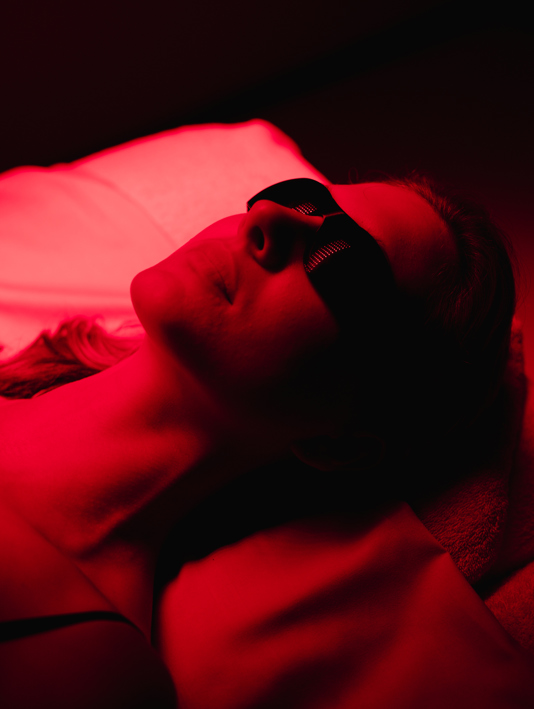
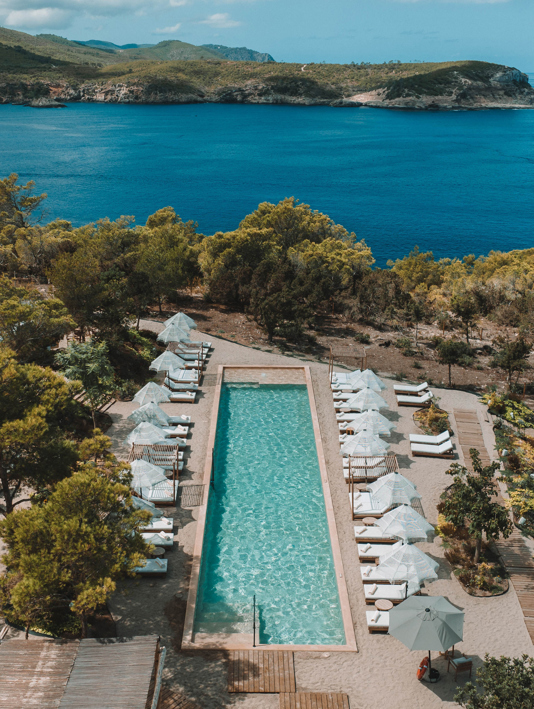
RoseBar red light therapy and the pool at Six Senses Ibiza
Biohacking
What is biohacking, you ask? Put simply, biohacking is the data science behind superhumanity – achieved by the monitoring and consequent control of one’s own biology as a means to upgrade it. Those billionaires we were talking about? They can’t get enough – with Silicon Valley titans all the way up to Bezos pledging to crack literal immortality via cutting-edge tech. As for the hacking, everyday examples include intermittent fasting, ice baths, supplementation and light therapy.
Red light therapy at Six Senses Ibiza, for instance, promises to promote the healing of skin and muscle tissue. At the Four Seasons Maui in Hawaii, guests seek bio-rejuvenation through in-house ozone and stem cell therapies, safely introducing oxygen into the blood with a view of paradise. Soon, a Clinique La Prairie clinic will arrive at the One&Only One Za’abeel in Dubai. “Wellness has become the trillion-dollar business that everybody’s talking about,” says the hotel group’s CEO. “So we have naturally evolved.” At Vivamayr Maria Wörth, a celeb-loved medi-spa in Austria, a heady cocktail of fasting, cryotherapy chambers and IV infusions claim to reduce the need for medications by half, with a particularly ferocious programme for diabetics. Once you see the price tags of all four, you might be forgiven for thinking it is the survival of the richest.
Biohacking on a budget can, however, be found on the open road. Less costly considerations include the promotion of deep sleep, cold showers (that one’s on you, we’re afraid), plus fasting (Klosterhof spa hotel in Bavaria’s 14-day fasting retreat is the most affordable we could find), stress-management (are there any hotels these days that don’t give you a yoga mat?) and increased movement, which is easier when you’re in, let’s say, one of these stunning destinations.
Healing holidays
Addicted to holidaying just as much as you are to any other so-called vice? That’s good news for you – as the simple act of travel is said to correlate with longer living, its benefits lasting long after the tan has faded. A recent 40-year-long study on male business executives from Finland found those who didn’t use up all their annual leave allowance from work had a 37 per cent greater chance of dying earlier than those who did. A follow-up study found individuals who holidayed for more than 21 days per year had a 10-15 per cent lower chance of expiring in the next 30 years.
And while no one is a greater fan of solo travel than we are – the longevity experts might just advocate for a group trip, instead. By joining a likeminded tribe, you’ll be hitting a further three of the Power9 – which focus on the importance of connection rather than diet and movement – and still enjoy all the stress-reducing, mood-boosting, detoxifying pleasures of a much-needed holiday. You can thank us later – like, years later.


